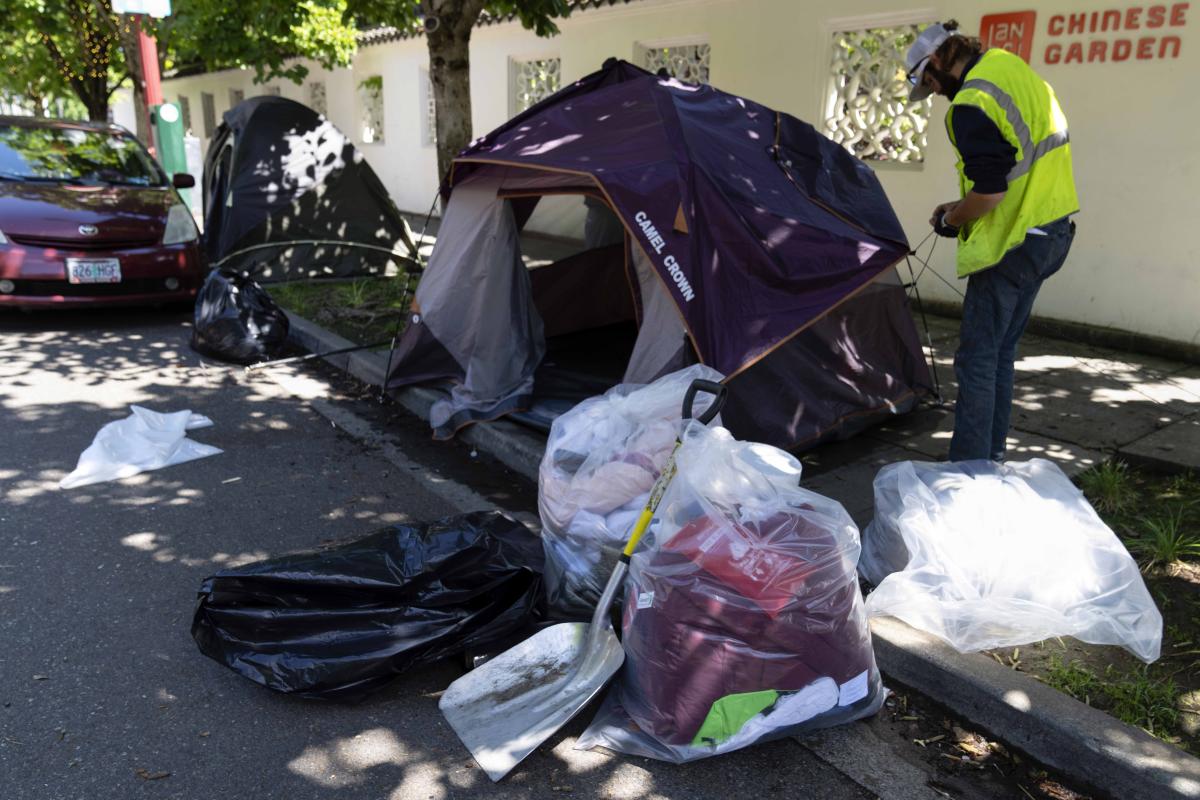SEATTLE (AP) — A U.S. Supreme Court decision allowing cities to enforce a ban on outdoor sleeping in public spaces will allow San Francisco to clear out homeless encampments that have plagued the city, the mayor said Friday as she announced the ruling cheered.
The case is the most significant to come before the Supreme Court in decades. It comes as cities across the country grapple with the political complexities of how to deal with a growing number of homeless people and public frustration over related health and safety issues.
“We will continue to lead the way in providing services, but we also cannot continue to allow people to do whatever they want on the streets of San Francisco, especially when we have a place for them to go,” San Francisco Mayor London N. Breed, a Democrat, said in the aftermath of the 6-3 ruling.
Breed said she will discuss the ruling with the city attorney’s office before implementing new policies. The city will also provide training for those clearing the camps.
But the ruling was not universally welcomed, and some cities, such as Seattle, said their approach to encampments would not change. A spokesman for the mayor’s office in Portland, Oregon, said it was prevented by state law from making major changes based on the court ruling.
Cody Bowman, a spokesman for Portland Mayor Ted Wheeler, a Democrat whose two terms in office were plagued by discontent over the city’s homeless crisis, said they hoped the decision would prompt the state Legislature to take up the issue and “see this as an opportunity to consider what tools cities really need to manage public campgrounds, provide adequate shelter and keep our streets safe and clean.”
Boise, the Idaho Democrat, also said the city will not change its approach to those sleeping in public spaces, including case management and supportive housing.
“In Boise, we take care of people. Criminalizing homelessness has never, and never will, solve the problems associated with homelessness,” said Mayor Lauren McLean. “We must address the root causes with proven strategies, like permanent supportive housing, that enable our residents to stay housed and thrive in their communities.”
Governor of California Gavin Newsomwho is expected to sign a state budget in the coming days that includes another $250 million in grants for local governments to clear homeless encampments, said the ruling gives state and local officials “the final authority” to enforce policies that clears unwanted camps.
“This decision removes the legal ambiguities that have tied the hands of local officials for years and limited their ability to take common sense actions to protect the safety and well-being of our communities,” Newsom said in a statement after the ruling, which came the same day Los Angeles released an annual count of its homeless population.
Sara Rankin, a law professor at Seattle University who directs the Homeless Rights Advocacy Project, said the decision would likely result in a kind of free-for-all for cities that ban people from sleeping rough. But she said state constitutional provisions and other federal constitutional provisions could be invoked.
“I think some cities will misinterpret this as a green light for open season for unhoused people,” she said. “But if they do, they do so at their own peril, because I think lawyers will come back at them based on other theories that are still available to them and that remain unaffected by today’s decision.”
The case came from the rural Oregon town of Grants Pass, which appealed a ruling that struck down local ordinances that fined people $295 for sleeping outdoors after tents began crowding public parks. The 9th US Circuit Court of Appeals, which has jurisdiction over the nine Western states, has ruled since 2018 that such bans violate the Eighth Amendment in areas where there are not enough shelter beds.
Jesse Rabinowitz, director of communications and campaigns at the National Homelessness Law Center, fears this decision will cause cities to focus even more on arresting people who sleep outside, rather than on proven solutions.
“There are encampments in California, DC and New York, not because there are no laws to punish people, but because there is not enough housing to meet everyone’s needs,” he said. “And this case will make it harder to focus on the real solutions.”







